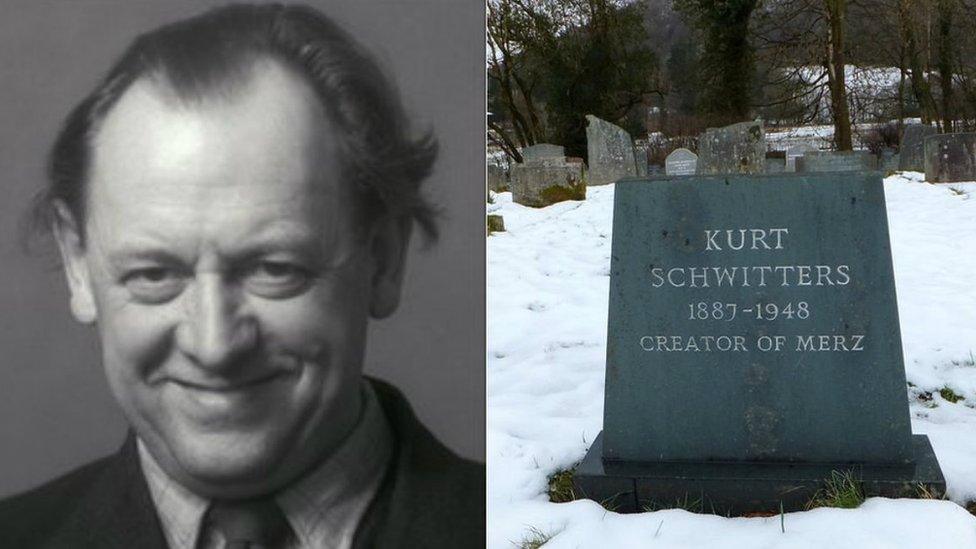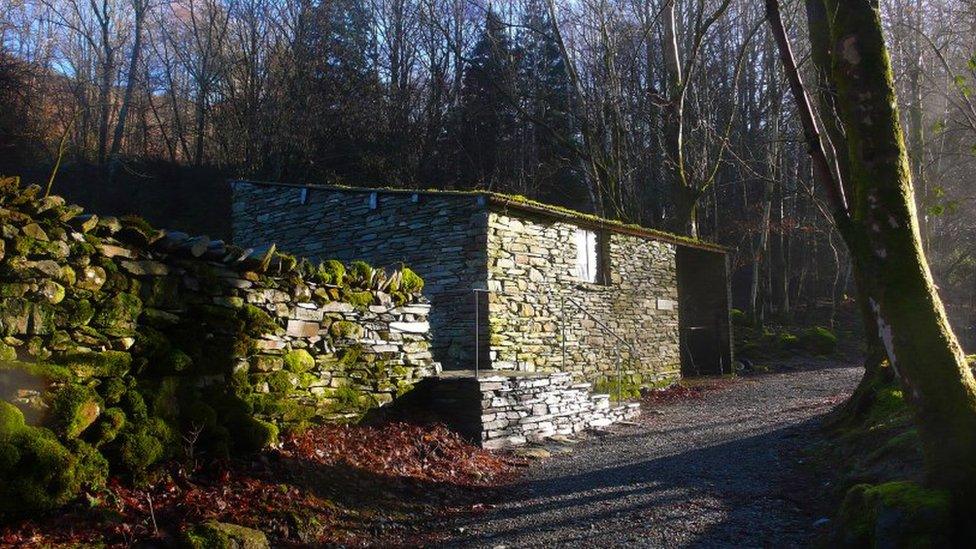Kurt Schwitters honoured on 70th anniversary of death
- Published

Kurt Schwitters settled in Ambleside during his final years
The 70th anniversary of the death of one of the leading lights of an art movement branded as degenerate by the Nazis is being celebrated in Cumbria.
Kurt Schwitters fled his home in Hanover, Germany, in 1937, and later settled in Ambleside.
He was awarded his British citizenship papers on 7 January 1948, the day before he died, penniless, in what was then the Kendal Workhouse infirmary.
Both anniversaries are being marked with events including poetry and song.
Schwitters was largely forgotten when he died, but has since been credited with influencing modern-day artists such as Damien Hirst and Antony Gormley.
During his time in Cumbria he was given the use of a former gunpowder store in Elterwater as a studio, where he created his famous "Merz Barn" artwork.
Unfinished at his death, it was left on site and neglected until the 1960s when it was removed to be put on display at the Hatton Gallery in Newcastle.

His transformed the former gunpowder store into a studio and an artwork in its own right
Events marking the anniversary of his death include songs and recitals of his poetry at the Queens Hotel in Ambleside, and a wreath will be laid on the site of the former workhouse infirmary on Caroline Street in Kendal.
During the evening there will be a barbecue with music and songs at the Merz Barn site in Elterwater.
Ian Hunter, director of the Littoral Arts Trust, said: "He knew he was connected to this great cultural engine which I call modernism - he was one of the builders.
"He wanted to be accepted and recognised for his contribution, and that's what we're doing."
- Published29 January 2013
